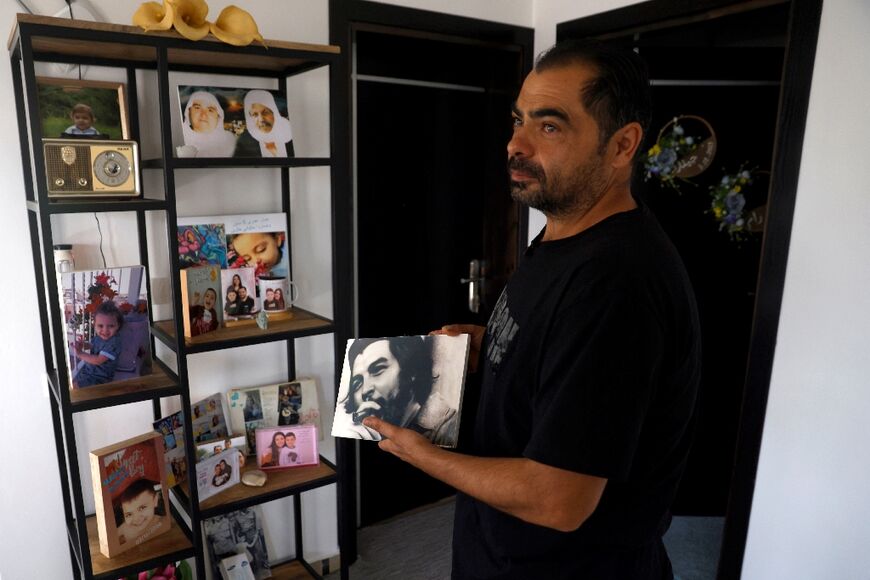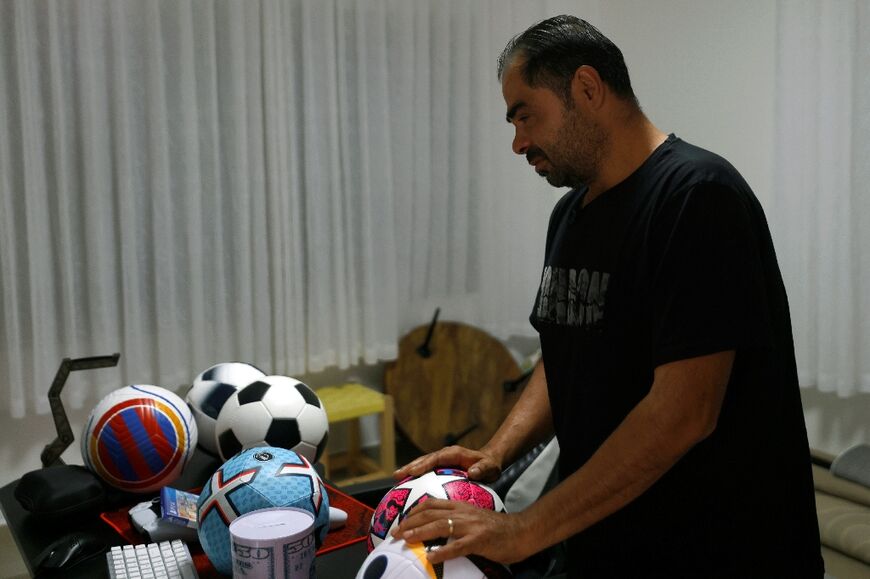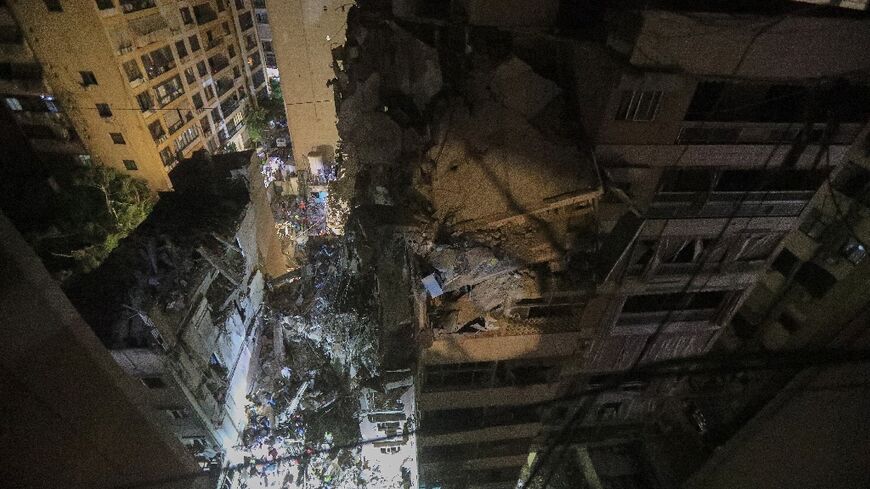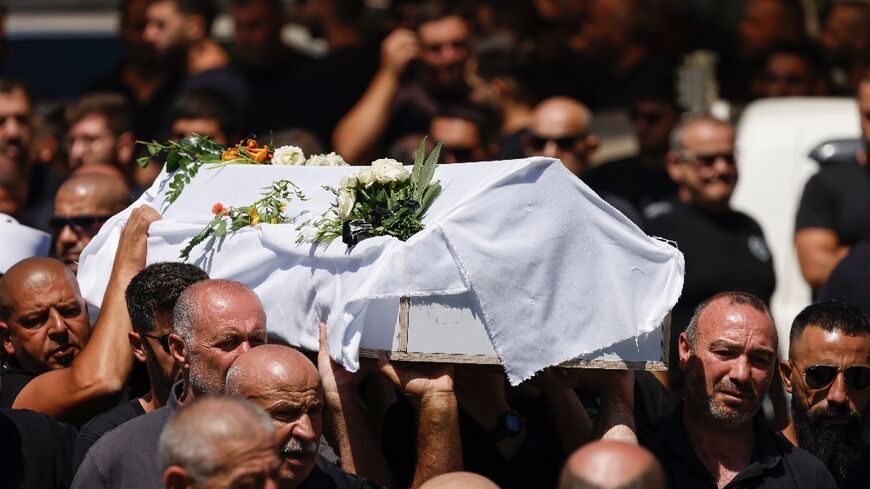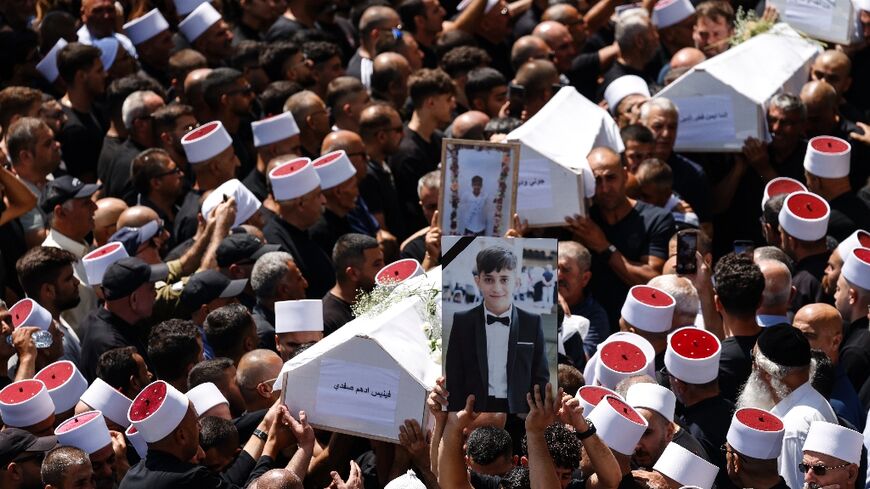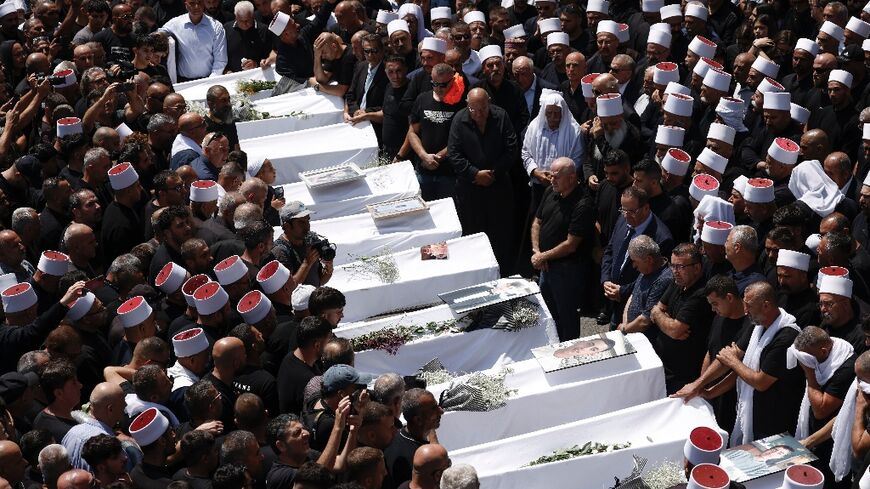Druze father's search for son after Golan rocket attack ends in grief
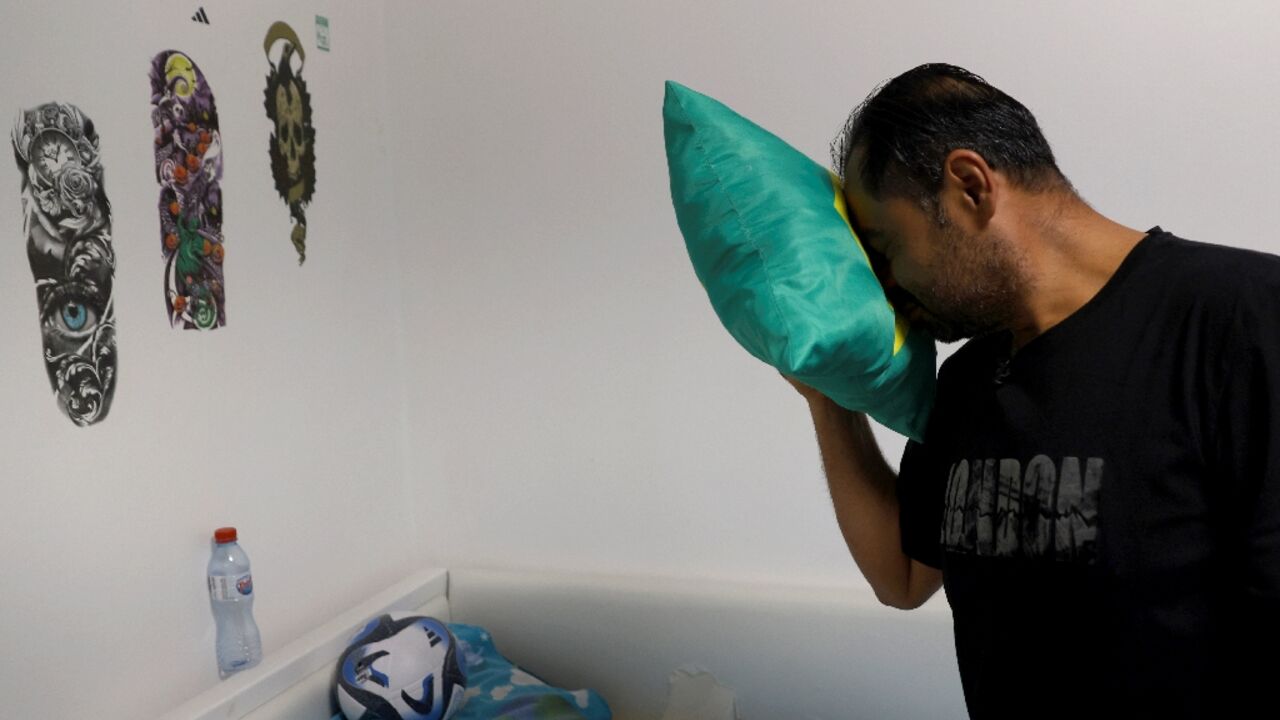
When Ibrahim Ibrahim heard the sirens warning of incoming rocket fire on the Israeli-annexed Golan Heights, his first thought was for his son Guevara, who was out at the playing field.
When the family realised the rocket fired from nearby Lebanon on Saturday had struck the playing field in their Druze Arab hometown of Majdal Shams, 47-year-old Ibrahim ran there, heart racing.
"When I heard the siren, I felt something had happened to Guevara," Ibrahim told AFP from the balcony of his home, just a few hundred metres (yards) from the armistice line with Syria.
"When I saw many casualties, I feared he was among them," he added in a shaky voice that soon gave way to tears.
But they could not find Guevara among the other children killed or wounded as they ran from their football game towards a nearby bomb shelter, some close enough that their blood still stained the concrete structure.
The 47-year-old, who works at a local fruit packing factory, did not find out what had happened to his 11-year-old son until 27 hours later.
"It was a difficult feeling, especially not knowing for two days," Ibrahim said.
When Ibrahim talked to AFP four days after the strike, Majdal Shams, the main Druze town of the Golan with around 11,000 inhabitants, still mourned its loss.
Black flags hung from lamp posts and statues. On one roundabout, 12 chairs were arranged with the names of each victim and footballs taped to them in remembrance.
Israel and Lebanese militant group Hezbollah have traded rocket fire since the beginning of the war in Gaza, when Hamas's Shiite ally began to target its southern neighbour, in support of the Palestinians.
Due to their particular status as an Arabic-speaking group in a territory seized by Israel from Syria in 1967 and later annexed in a move never recognised by the international community, the Druze of the Golan had felt safe from danger.
But Majdal Shams's location, at the foot of Mount Hermon, just seven kilometres (a little over four miles) from Lebanon, means that rockets and missiles fired from over the border strike seconds after sirens sound.
- 'There was no Guevara' -
From the playing field Ibrahim and his wife Dalia went to the town's clinic after being told his son was there. From there they went to the hospital in the Israeli city of Safed with no luck.
They were told Guevara was undergoing surgery in a hospital in the port city of Haifa, more than an hour's drive away. But once there, another man told them the boy in the intensive care unit was actually his son, not theirs.
"It turned out there was no Guevara. It was all lies, but we kept hoping," said Ibrahim, who named his eldest son for the Argentinian Marxist revolutionary during his college days in Damascus, where Golan Druze often study.
Today, a portrait of Che still hangs on a shelf outside the room Guevara shared with his younger brother Ram.
Ibrahim laid turf on his balcony for Guevara, who "never went anywhere without his ball".
A Brazil supporter and Ronaldinho fan, Guevara wanted to be a professional football player, had a Brazil jersey and a Brazil flag pillow on his bed.
- DNA results -
At the Safed hospital, police took a DNA sample from Ibrahim to compare it to forensic evidence collected after the strike.
Ibrahim's brother-in-law had gone to the police to look at footage of the strike.
Ibrahim said security cameras showed Guevara "playing with his friend, holding the ball, shooting, and then heading to the other kids when the siren went off at 6:18 pm (1518 GMT)" on Saturday, Ibrahim said.
"He and his friend reached the gate when the rocket hit," which is when Ibrahim said he "began to understand" that his son may have been so close to the impact that there were no remains to enable his identification.
But Ibrahim and Dalia remained hopeful, especially when the DNA test results showed no matches. Another sample was taken, from Dalia, on Sunday afternoon.
Between 500 and 1,000 members of the still reeling community went out in search of Guevara.
But at 9:00 pm, the police called and confirmed that Dalia's DNA had been matched to biological evidence from the scene.
"That was the end," said Ibrahim.
Israeli Prime Minister Benjamin Netanyahu visited Majdal Shams the following day and vowed a "severe response" to the attack Israel blamed on Lebanese militant group Hezbollah.
Hezbollah has denied it fired the deadly rocket.
Despite his son's death, Ibrahim harbours no desire for revenge. Like many in the Golan, he says he does not want the attack to justify more war.
"No one likes war. Our children and everyone's children suffer," he said.
"This incident didn't change my views. I still support peace."
